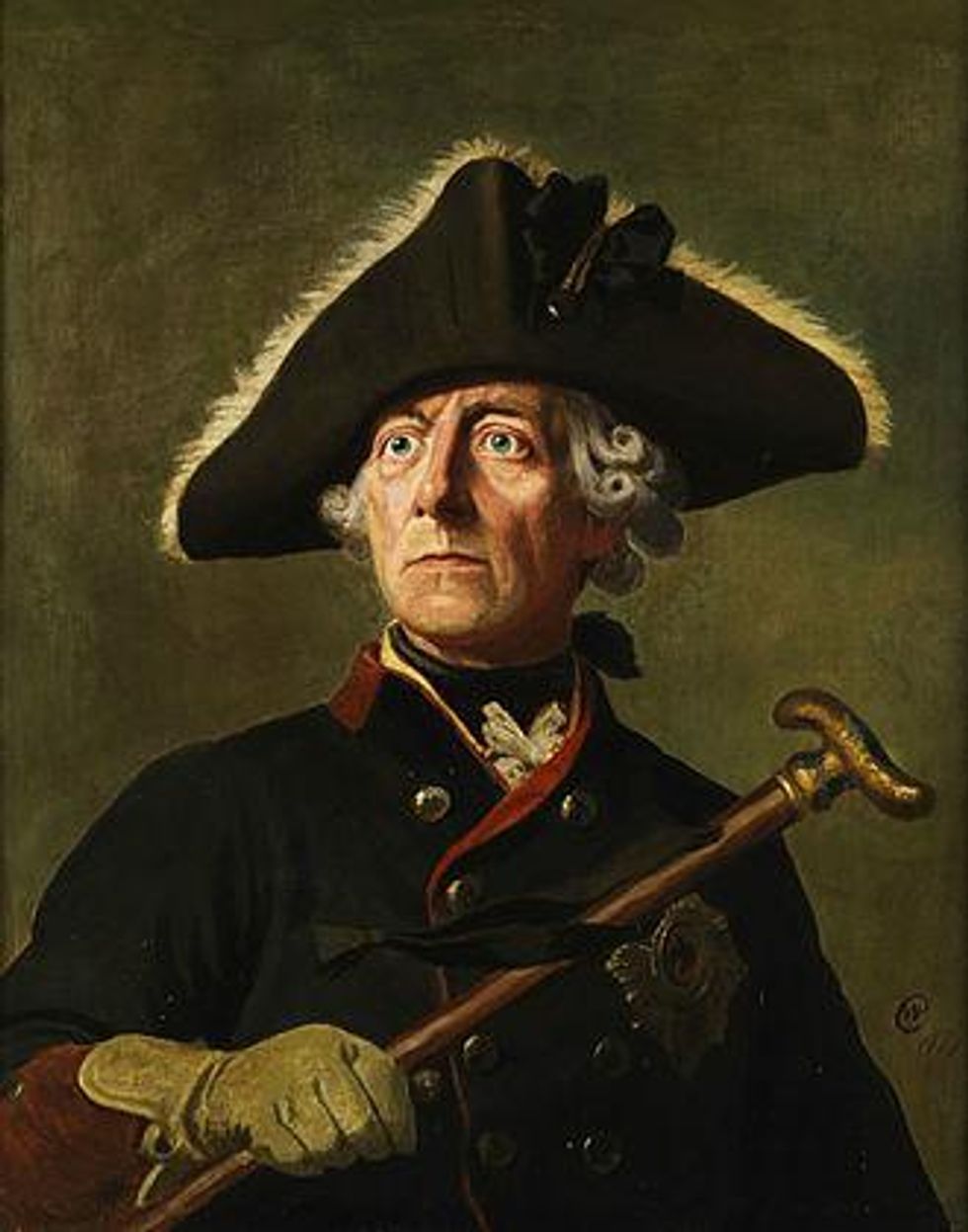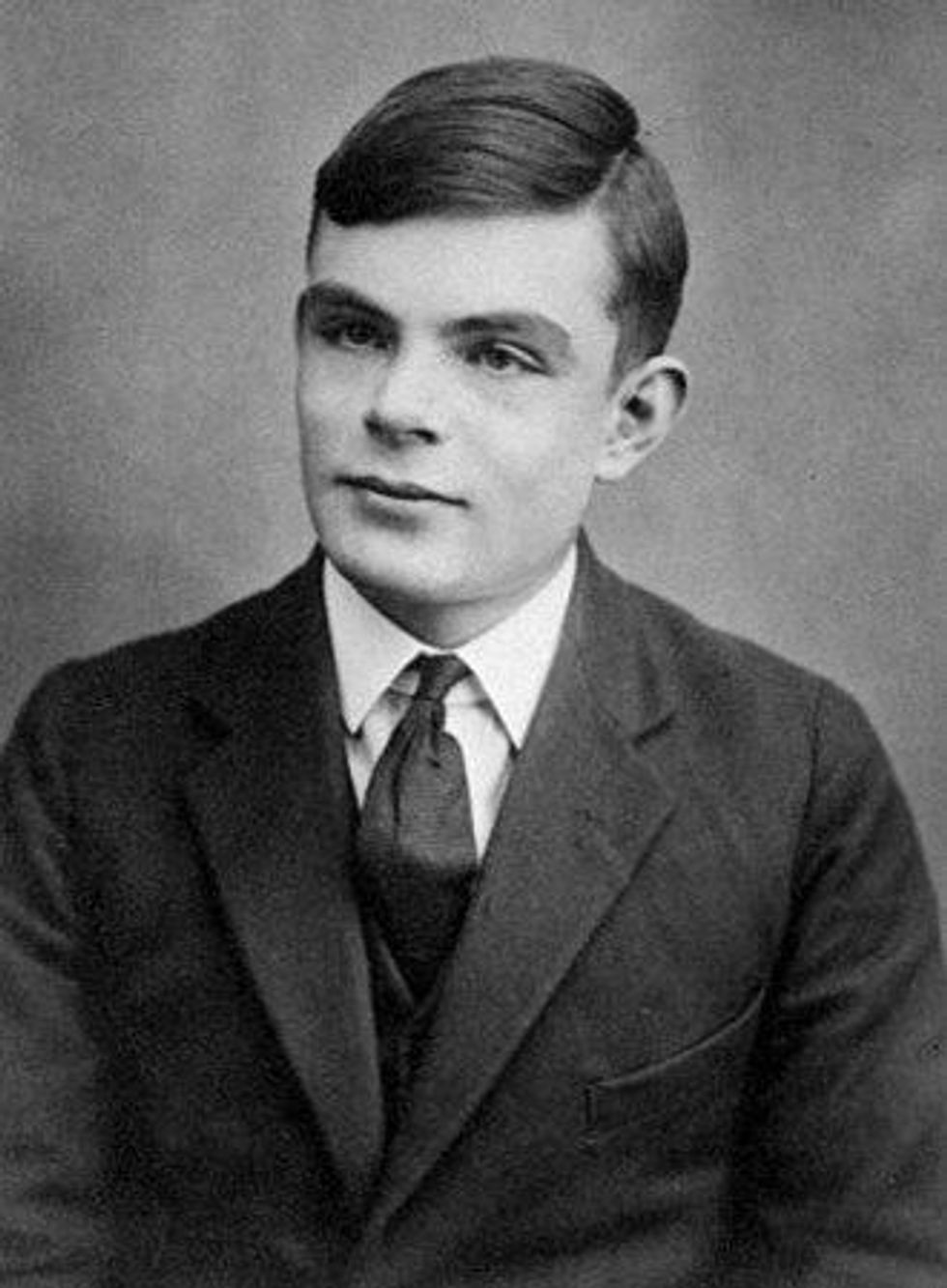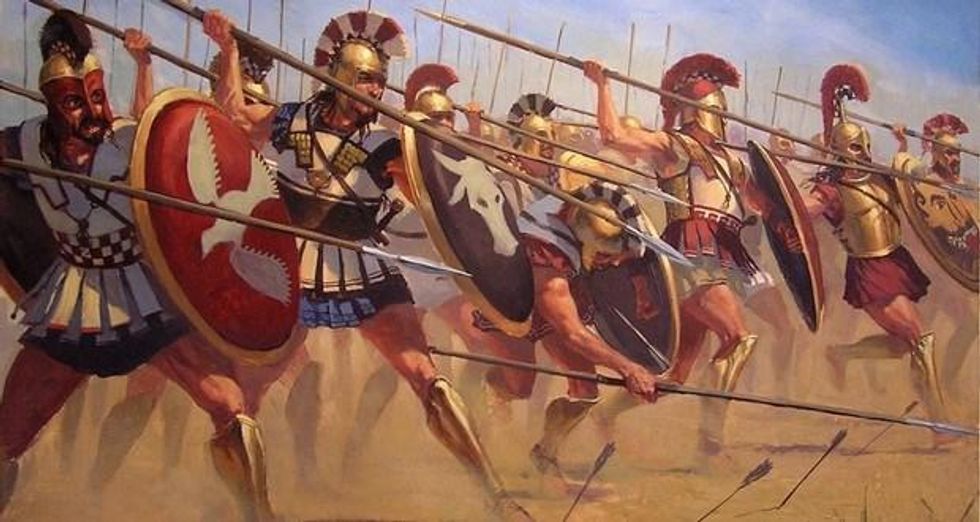Gay people have always existed throughout history, but if I asked you to name a gay historical figure, you would probably be hard-pressed to do so. I think that's because our history classes are more concerned with a set of names and places and dates that can honestly get quite boring rather than the far more important human element that comes with studying history.
You've probably forgotten these history-makers in that endless parade of information, but learning more about their personal lives can really help you understand and connect with people from the past.
While their sexuality is certainly not what defines them, many of these figures lived in times and places with anti-gay stigmas, which makes their accomplishments all the more impressive. Without further ado, here we go!
1. First up is Fredrick the Great, the first King of Prussia (1740-86)
Prussia was a powerful northern German state that was famed for its highly disciplined and capable military, with Voltaire proclaiming that 'most states have an army, but the Prussian army has a state'. Prussia gained this reputation for military prowess primarily during the mid-1700s due to the absolute badassery of Fredrick the Great, who was a brilliant strategist, administrator, and patron of the arts.
Fredrick was also openly gay when he was outed in 1744, and Protestant Germany in the 18th century wasn't exactly the most gay-friendly place. However, Fredrick was so talented and capable that he was loved by his people and retained incredible popularity throughout his reign.
While some historians may argue he was not gay, the majority do agree he was; you can read the proof for yourself here, and it speaks for itself.
While his accomplishments are impressive all on their own, the fact that he did so while facing the difficulties that came with his sexuality makes them even more so.

2. Next, we have Queen Kristina I of Sweden, also called the 'Minerva of the North'
She took the throne after the death of her father, Gustavus Adolphus II in 1632. Inheriting her father's war as well as his throne, Kristina advocated for an end to the Thirty Years' War when she came of age to rule. While she did have moderate military success, Kristina is known far more for her love of academia and the arts, sponsoring many great scientists, philosophers, and artists to come to Stockholm. Her sexuality is disputed depending on the source, but many agree that she maintained romantic relations with both men and women, although she did have more of these relations with women than men.
She is also said to have had an androgynous personality that led to many believing her to be intersex, although this is likely not the case. However, her sexuality would cause political problems, as she refused to marry and thus could not secure an heir. This led to her abdication in 1654, after which she would flee to Rome, convert to Catholicism, and be the guest of five different popes before her death in 1689.

3. Here comes someone you've definitely heard of before, the man, the myth, the legend, Julius Caesar
In case you don't remember all that Caesar did back in his day, he conquered Gaul (France), was the first Roman to cross the Rhine River into Germania and was the first Roman to sail across the English Channel to Great Britain, marched on Rome to begin a civil war against his rival, Pompey, and campaigned across Egypt and the Levant before being assassinated on the Ides of March.
The part of his life you probably haven't heard about is his bisexuality.
While Caesar is noted for his love affairs with Cleopatra and various other women, he is also said to have had sexual relations with at least one other man, King Nicomedes of Bithynia.
Contrary to what you may believe, the Romans were actually fine with homosexuality, but Caesar's relations with Nicomedes roused still roused controversy. Why? Because allegedly, Caesar was a bottom. Yep, you read that right! The Romans did not like it when their leaders were the 'passive' partner, seeing it as less 'manly'.
So basically, Caesar was a brilliant bisexual tactician who did not care what people thought about his sexual desires - if that doesn't add to his badassery, I don't know what does!

4. If you've heard of Alan Turing, you probably know that he was a gay British codebreaker and inventor during World War II
Turing is one of the scientific geniuses of the twentieth century, right up there with Albert Einstein. Turing invented his 'Turing Machine' during World War II to be used in breaking the notorious German Engima Code. He successfully figured out how to repeatedly break the Enigma Code, resulting in the Allies finally being able to read all intercepted German communications, which has been estimated to have shortened the war by two whole years and saved millions of lives.
As if that wasn't enough on its own, the Turing Machine was actually a precursor to modern computer technology, and Turing would improve on his device to show the power of computing technology and popularize its research, eventually resulting in the devices you and I know and love today. However, when the British government found out Turing was gay, they had him chemically castrated in a disgusting abuse of power. In a fit of despair, Turing committed suicide soon after.
Turing was not just a genius who succeeded in the face of discrimination but is also an icon of civil rights and the atrocities that can happen while homophobia and hatred remain ingrained in our society.

5. Last up on our list is the Sacred Band of Thebes, a group of 300 ancient Greek soldiers from the city-state of Thebes
Courageous and fearsome in battle, the entire phalanx was composed of 150 couples, as the King of Thebes thought that people would fight more fiercely and die more courageously to protect their lover than just their state or friends.
The 300 men became infamous for their prowess and ferocity in battle all across the Greek World, directly defeating even the legendary Spartans in battle. However, Philip of Macedon, who grew up in Thebes, would defeat the Sacred Band when he conquered Greece. He wept upon seeing the bodies of the Sacred Band, proclaiming that the men neither 'did nor suffered anything unseemly.'
The Sacred Band was truly badass, as only ever losing to the father of Alexander the Great is quite the accomplishment.




















